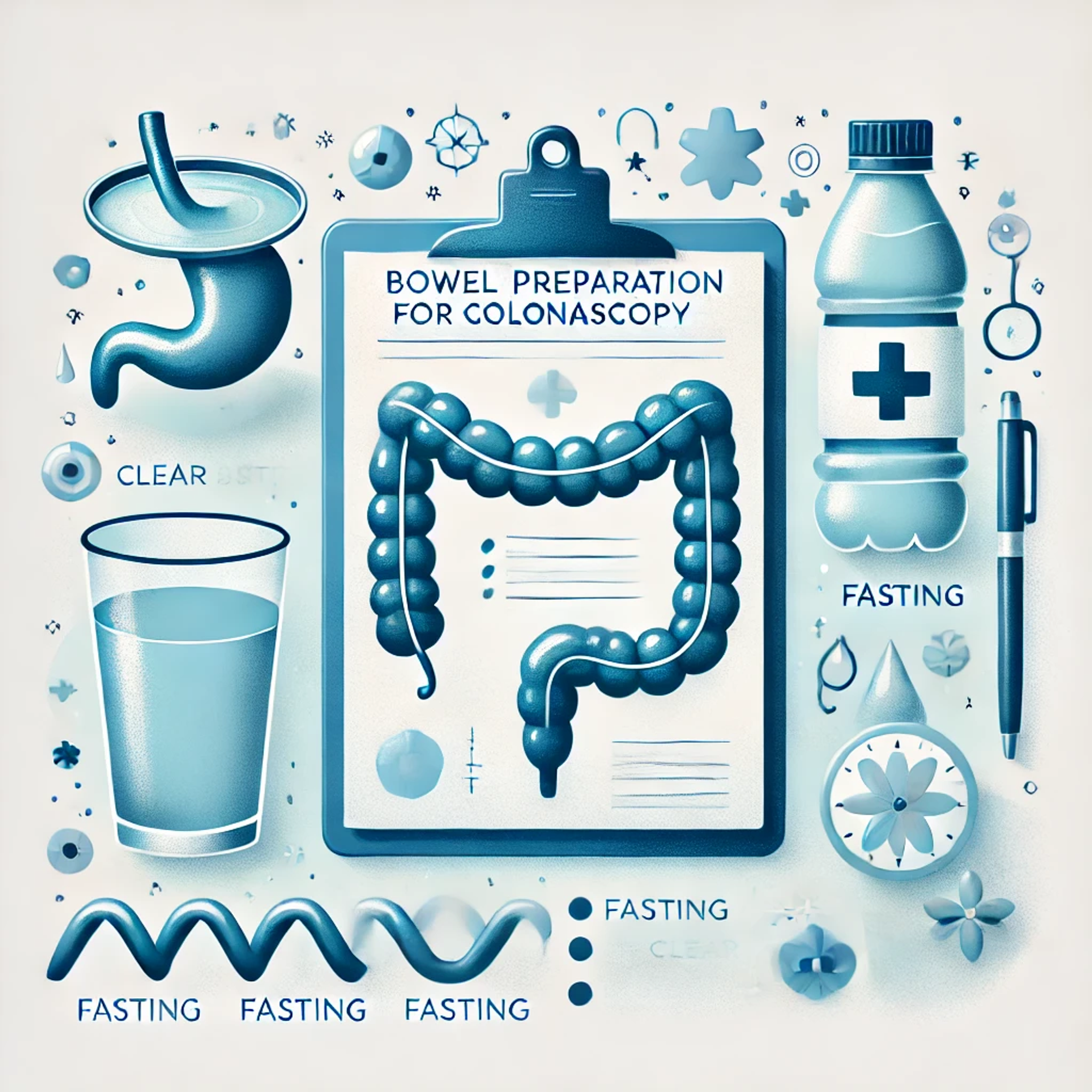Adequate bowel preparation is a critical component of ensuring a successful colonoscopy, as it provides the clearest view of the colon and rectum, allowing the physician to detect potential abnormalities such as polyps, tumours, or inflammation. To achieve the best possible outcomes, it is essential to follow the prescribed preparation guidelines precisely.
Below is a comprehensive guide to ensure effective bowel preparation.
1. Adhere to Your Physician’s Instructions
Your gastroenterologist will provide personalised instructions for bowel preparation based on the type of solution prescribed. It is paramount to follow these directions carefully, as the effectiveness of the procedure largely depends on the thoroughness of bowel cleansing.
2. Dietary Adjustments Prior to the Procedure
- 3-5 Days Before the Procedure: You may be instructed to reduce fibre intake to avoid residual material in the colon. High-fibre foods, such as whole grains, nuts, seeds, fruits, and vegetables, should be limited during this period.
- 1-2 Days Before the Procedure: You will transition to a clear liquid diet. This includes:
- Water, clear broths, and clear fruit juices (e.g., apple or white grape juice)
- Tea or coffee (without milk or cream)
- Clear, non-coloured sports drinks
- Plain gelatin (without artificial colours)
- Avoid solid foods, dairy, alcohol, and beverages with pulp or artificial colouring, particularly red or purple, as they can interfere with the procedure.
3. Laxative Preparation: Key to Colon Cleansing
Your gastroenterologist will typically prescribe a bowel prep solution, designed to induce frequent bowel movements and thoroughly clear the colon. Important tips include:
- Timing: You will likely be asked to take the solution in two phases—half the dose the evening before your colonoscopy and the remaining portion several hours before the procedure. Ensure you follow the timing precisely to maximize effectiveness.
- Hydration: In addition to the bowel prep solution, drinking ample clear liquids is essential. This helps prevent dehydration and ensures the solution works effectively. Continue to hydrate well throughout the preparation phase.
4. Prepare for Frequent Bathroom Visits
As the laxative solution begins to work, you will experience frequent and urgent bowel movements. It is crucial to stay near a bathroom during this phase, as the colon empties rapidly. Have items such as wet wipes and soothing ointments on hand to minimise discomfort.
5. Ensure Adequate Hydration
Adequate hydration is essential during bowel prep, as the process can lead to fluid loss. Aim to drink plenty of clear fluids, but avoid drinks with dyes or pulp. Staying well-hydrated will help alleviate potential side effects like dizziness or fatigue and support the effectiveness of the laxatives.
6. Medications and Supplements
Discuss any regular medications with your gastroenterologist. Certain medications, such as those for diabetes, hypertension, or heart disease, may need to be adjusted before the procedure. Some medications may need to be temporarily suspended, particularly those that affect blood clotting or gastrointestinal motility. Always consult your healthcare provider regarding the timing of your medications during the prep period.
7. Avoid Certain Foods and Beverages
- During the preparation period, avoid all solid foods and any liquids that are not part of the clear liquid diet.
- Do not consume alcohol, as it can lead to dehydration and interact with your medications.
- Refrain from drinking beverages with artificial colours (e.g., red, purple, or blue) as these can mimic blood during the colonoscopy, potentially complicating interpretation of the results.
8. Manage Potential Side Effects
While bowel preparation is generally well-tolerated, some individuals may experience nausea, bloating, or mild abdominal cramping. These symptoms are typically temporary but can be distressing. If you have trouble tolerating the solution, or experience excessive discomfort, contact your gastroenterologist for guidance.
9. 12-Hour Fasting
It is standard practice to fast for at least 12 hours prior to your procedure. This means no food or drinks (except for clear liquids) should be consumed within this period. This ensures that your stomach is empty, reducing the risk of aspiration during sedation and making the procedure safer and more effective.
10. Plan for Post-Procedure Care
After the colonoscopy, you will be monitored as the effects of sedation wear off. Due to the sedative medications used, you will not be able to drive or operate machinery, so it is important to arrange for transportation home. You may feel slightly bloated or experience mild cramping after the procedure, but these symptoms usually resolve within a few hours.
Final Thoughts
Proper bowel preparation is essential for a high-quality colonoscopy. By following your doctor’s instructions for diet, medication, and the bowel prep solution, you will help ensure that the procedure is as effective as possible. The clearer your colon is, the more likely it is that any potential issues—such as colorectal cancer, polyps, or inflammatory conditions—will be detected early, improving outcomes and enabling timely intervention.
If you have any questions or concerns about the bowel preparation process, please reach out to your gastroenterologist.

